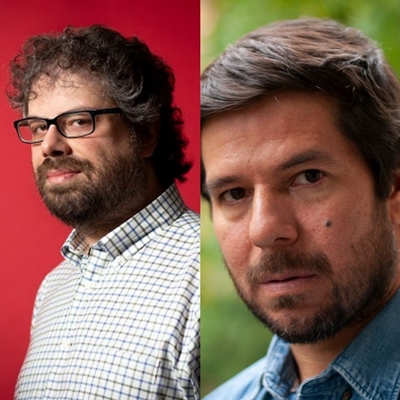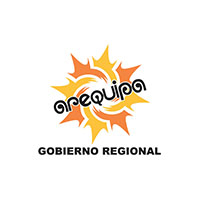Hay Festival Arequipa 2021 – Biography
More info at +51 984346405 or infoperu@hayfestival.com
Event HJ6
Sabrina Duque in conversación with Jorge Jaime Valdez
Travelling through life
Universidad Continental, Auditorio
Read moreJournalist, essayist and translator. Sabrina Duque won the Michael Jacobs Travel Writing Scholarship in 2018 and has been a finalist for the Gabriel García Márquez Prize for Journalism. In 2017 she published Lama (Turbina), a chronicle about the lives of the survivors of Bento Rodrigues and Paracatú de Baixo, towns in the interior of Brazil buried by toxic mud that overflowed from a mining waste dam. In 2019, she published VolcáNica (Debate), which covers both the volcanic nature of Nicaragua and its shocks, explosions and political flare-ups, regarding the protests of April 2018, which gave way to intense repression in the country. Her latest book, Necesito saber hoy de tu vida, a collection of profiles written in Portugal and Brazil, was published in 2023 by Anagrama. Excerpts from it have been translated into Portuguese, Italian and English. She has published in Etiqueta Negra, Folha de S. Paulo (Brazil), O Estado de S. Paulo (Brazil), Internazionale (Italy), The New York Times (USA), GK (Ecuador), El Malpensante (Colombia), Gatopardo (Mexico) and Brecha (Uruguay). She has lived in Portugal, Brazil, and Nicaragua, but currently resides in the United States.. In conversation with Jorge Jaime Valdez.

Event 13
Christopher Acosta in conversation with Cecilia Valenzuela
Presidents by accident
Instituto Cultural Peruano Alemán
Read more
Event 19
Sabrina Duque and Ingrid Yrivarren in conversation with Enrique Durand Villalobos
Inspirational people
UNSA (Sala Mariano Melgar)
Read moreSponsored by Gloria-Yura

Event 66
Sergio del Molino in conversation with Renato Cisneros
Un tal González
Instituto Cultural Peruano Alemán
Read moreThe writer and journalist Sergio del Molino (Spain) takes us back to a crucial moment in the history of Spain employing the biographical thread of one of its major figures, Felipe González. In a masterful combination of history and literature, Un tal González shows us the figure of the Spanish politician, in a way that is not about settling scores or toppling icons. At this event, del Molino takes us into the complex world of Felipe González and shows us his unique vision of contemporary Spain. In conversation with Renato Cisneros.

Event 73
José Alejandro Godoy and Fernando Tuesta Soldevilla in conversation with Mabel Cáceres
Is today’s Peru ungovernable?
Auditorio Colegio de Abogados
Read moreTwo experts analyse the current political state of Peru, one characterised by corruption and violence, but also by possibilities for reinvention. José Alejandro Godoy is a political scientist, university lecturer and author of a range of books. His works El último dictador: Vida y gobierno de Alberto Fujimori and Los herederos de Fujimori draw a portrait of the man who led Peru during the 1990s, who was behind the government that the author identifies as the last authoritarian government of the 20th century, and they also go into the continuity produced by his children. His most recent book is Peligro: Orden de disparar, which goes a little further back in time and covers events in the country between 1980 and 1986. Fernando Tuesta Soldevilla, one of the most lucid and informed political commentators today offers a detailed look at the crises that the country’s political organisations and institutions are undergoing. His most recent work, La reforma política: Ideas y debates para un buen gobierno, is a compilation of columns and articles about this matter, written over the course of three decades, and which proposes alternatives for a reformation of democracy that offers citizens reasons for hope and optimism. In conversation with Mabel Cáceres.

Partner for Latin America

Principal Sponsors




Government Partner

Institutional Partner

